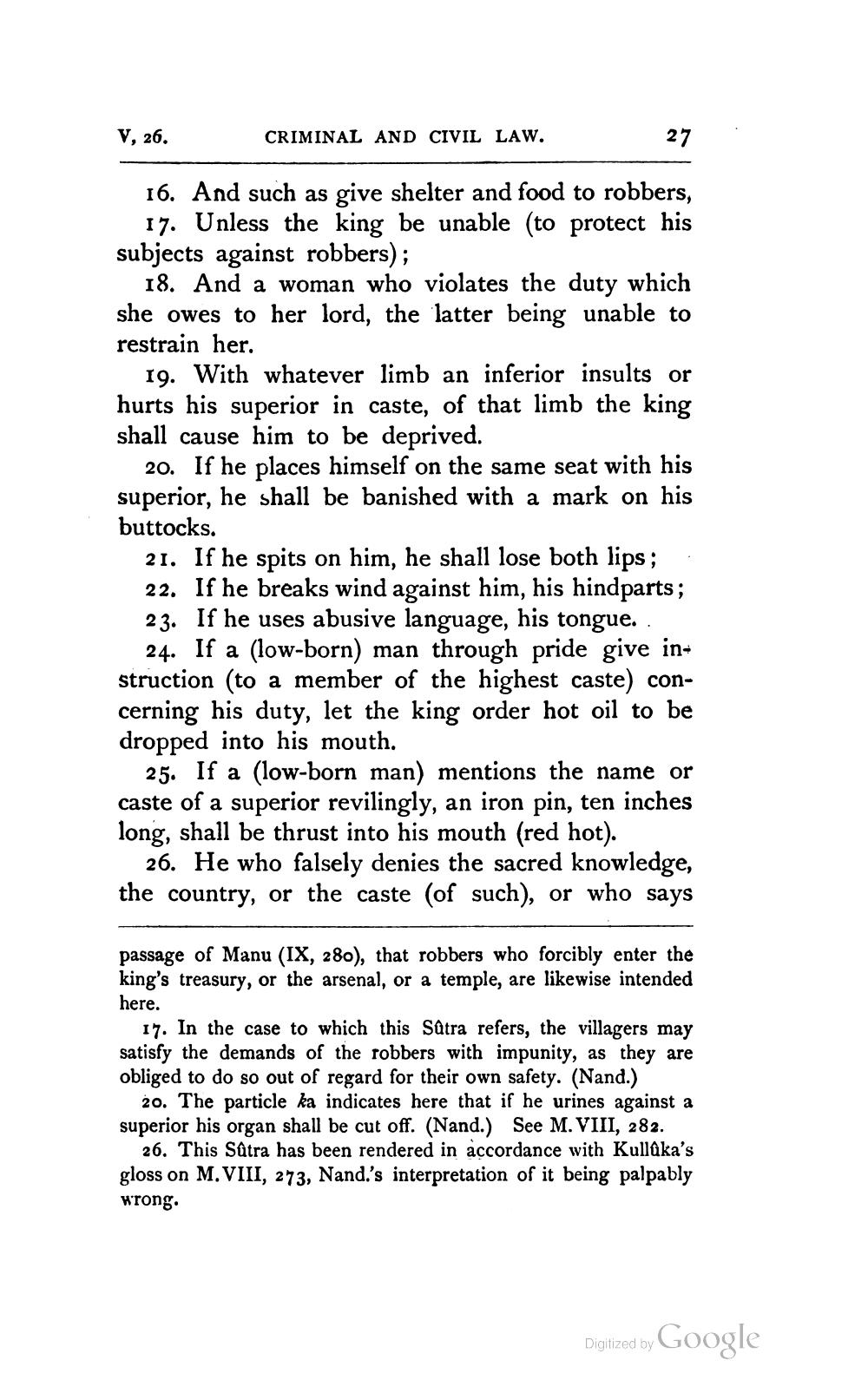________________
V, 26.
CRIMINAL AND CIVIL LAW.
27
16. And such as give shelter and food to robbers,
17. Unless the king be unable (to protect his subjects against robbers);
18. And a woman who violates the duty which she owes to her lord, the latter being unable to restrain her.
19. With whatever limb an inferior insults or hurts his superior in caste, of that limb the king shall cause him to be deprived.
20. If he places himself on the same seat with his superior, he shall be banished with a mark on his buttocks.
21. If he spits on him, he shall lose both lips; 22. If he breaks wind against him, his hindparts; 23. If he uses abusive language, his tongue..
24. If a (low-born) man through pride give instruction (to a member of the highest caste) concerning his duty, let the king order hot oil to be dropped into his mouth.
25. If a (low-born man) mentions the name or caste of a superior revilingly, an iron pin, ten inches long, shall be thrust into his mouth (red hot).
26. He who falsely denies the sacred knowledge, the country, or the caste (of such), or who says
passage of Manu (IX, 280), that robbers who forcibly enter the king's treasury, or the arsenal, or a temple, are likewise intended here.
17. In the case to which this Satra refers, the villagers may satisfy the demands of the robbers with impunity, as they are obliged to do so out of regard for their own safety. (Nand.)
20. The particle ka indicates here that if he urines against a superior his organ shall be cut off. (Nand.) See M. VIII, 282.
26. This Sätra has been rendered in accordance with Kullaka's gloss on M.VIII, 273, Nand.'s interpretation of it being palpably wrong.
Digitized by Google




